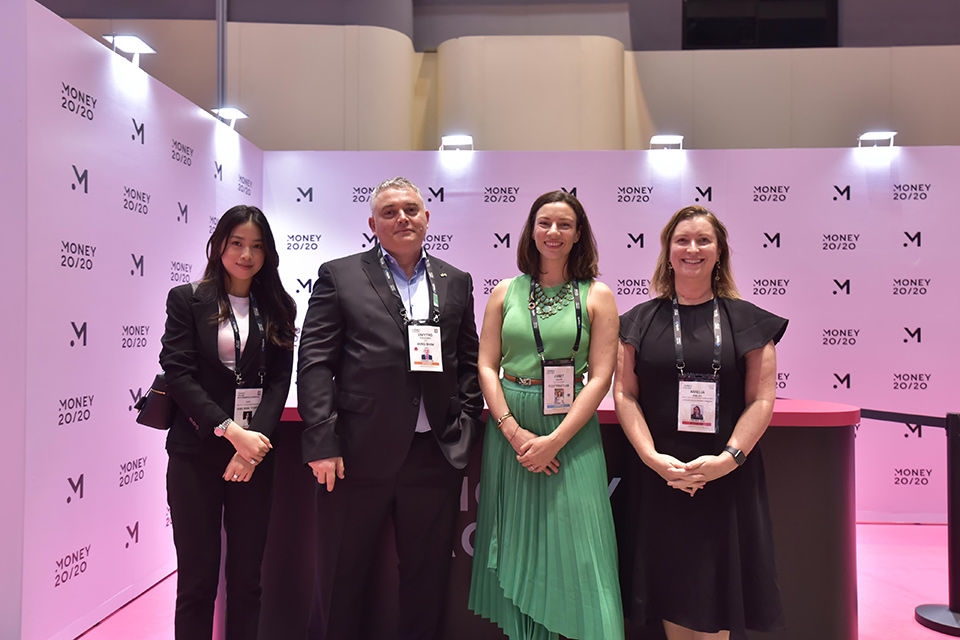It’s crunch time for climate action as governments around the world set deadlines to reach net zero. Australian startup FootprintLab brings climate data out into the open in a way that helps governments, businesses and individuals to make financial decisions that align with these climate goals.
FootprintLab provides up-to-date sustainability data related to biodiversity and water, for example, as well as things like labour and material use. And with more than 370 billion data points at its disposal, from 164 different countries, it’s a truly global business.
‘It’s about giving individuals, business leaders, and global leaders the information they need to shift the dial on climate change, as well as responding to pressure from governments and the market for disclosure,’ says Janet Salem, FootprintLab’s co-founder.
Partnering with Cambodia’s Wing Bank
Austrade’s insights and connections have helped FootprintLab start on its journey to help make a global impact on climate change.
It was through Austrade, at Money 20/20, that FootprintLab first connected with Cambodia’s Wing Bank. In April 2025, the 2 businesses announced a milestone partnership making climate data visible for every transaction through the bank.
‘Cambodian businesses are really at risk of unintended consequences of well-meaning climate action,’ explains Salem.
‘If they can’t measure their climate footprint when they export, they might lose export market share. This applies particularly to apparel and garments, where there is a lot of scrutiny.
‘In Cambodia, about 80% of exports could be affected, so Wing Bank wants to support its SME clients, and protect the country’s exports.’
The partnership is also about climate leadership on Wing Bank’s part, Salem says.
‘Part of the brand is that it’s an innovative company, and future-thinking. It’s not waiting for the rest of the world, and it’s not going to be left behind.’

FootprintLab Co-founder Janet Salem with Wing Bank CEO Dmytro Kolechko. Wing Bank will be the first bank in Cambodia to integrate carbon accounting into its services.
Improving data transparency and accessibility
While at the United Nations, Salem worked with environmental data sets, helping inform policy priorities around the world. Her co-founder, Dr Tim Baynes, comes from academia and a career as a senior scientist at CSIRO, transforming research into real-world application.
‘I realised that emissions data, although very valuable in the public sector, would be exponentially more effective in the private sector,’ Salem explains.
One of the major barriers to climate action is a lack of information to know which action is best, she says. Sustainability data is out there, but for businesses and individuals alike, there hasn’t yet been a way to access it, and hence make reliably informed spending decisions.
At the same time, Salem was seeing a swift move towards digitisation of payments, largely facilitated by governments. For the first time, there was both a large amount of sustainability information and a growing interface with financial decisions, via digital transaction records.
‘We put those together,’ she says. ‘People can use that information at the point where they make the financial decisions. It can change how we spend, lend and invest.’
Knowing ‘who’, ‘when’ and ‘how’
FootprintLab’s API can be integrated into environmental or financial accounting software, or work with fintechs, banks, procurement or investment companies. It’s a diverse client base, with almost unlimited potential. Salem says Austrade has been invaluable in figuring out where to start.
‘Technically, we could go anywhere. But practically we can’t,’ she says. ‘It’s helpful to engage with Austrade to understand where fintech and cleantech are a priority.’
FootprintLab has taken part in Landing Pad programs in India and Indonesia. The latter is one of 2 new Landing Pads (alongside another in Vietnam) established by Austrade under the Australian Government’s Southeast Asia Economic Strategy to 2040. The Landing Pad program is designed to help tech scaleups expand to the region and grow their international business.
The startup has also participated in events such as the Singapore Fintech Festival and Money 20/20 at Austrade’s invitation. Austrade has also facilitated introductions to prospective partners across Southeast Asia.
Despite her experience working overseas ‘with my UN hat on’, Salem says running a business requires a different skill set.
‘Austrade makes me feel more focused as an entrepreneur with a global product,’ she explains. ‘I can focus on the things I’m good at, and access support for things like go-to-market planning and expanding my networks in the market.
‘Austrade helps broaden opportunities to people like me from a technical or civil background. Austrade’s insights and connections make exporting just a bit less daunting.’
Partnering with global institutions to scale
While FootprintLab’s tech and development teams remain in Australia, it was always going to be a global company. That scale will come from partnerships with global institutions.
FootprintLab was accepted into Mastercard’s Start Path program, which provides global support for startups. It is also working with Indian multinational HCL Software.
The goal is ‘everything, everywhere, all at once’, Salem says.
‘There is $100 trillion in global GDP every year. The goal is for every one of those dollars and transactions to have a recorded carbon footprint.
‘This is urgent,’ she adds. ‘We want to see more ambitious policies, more screening of investments and procurement, and more transparency. We’re empowering decision-makers in industry and government to be as ambitious as they need to be.’
Go further, faster with Austrade
Austrade’s Go Global Toolkit helps you learn the export basics, find the right markets and understand market requirements.